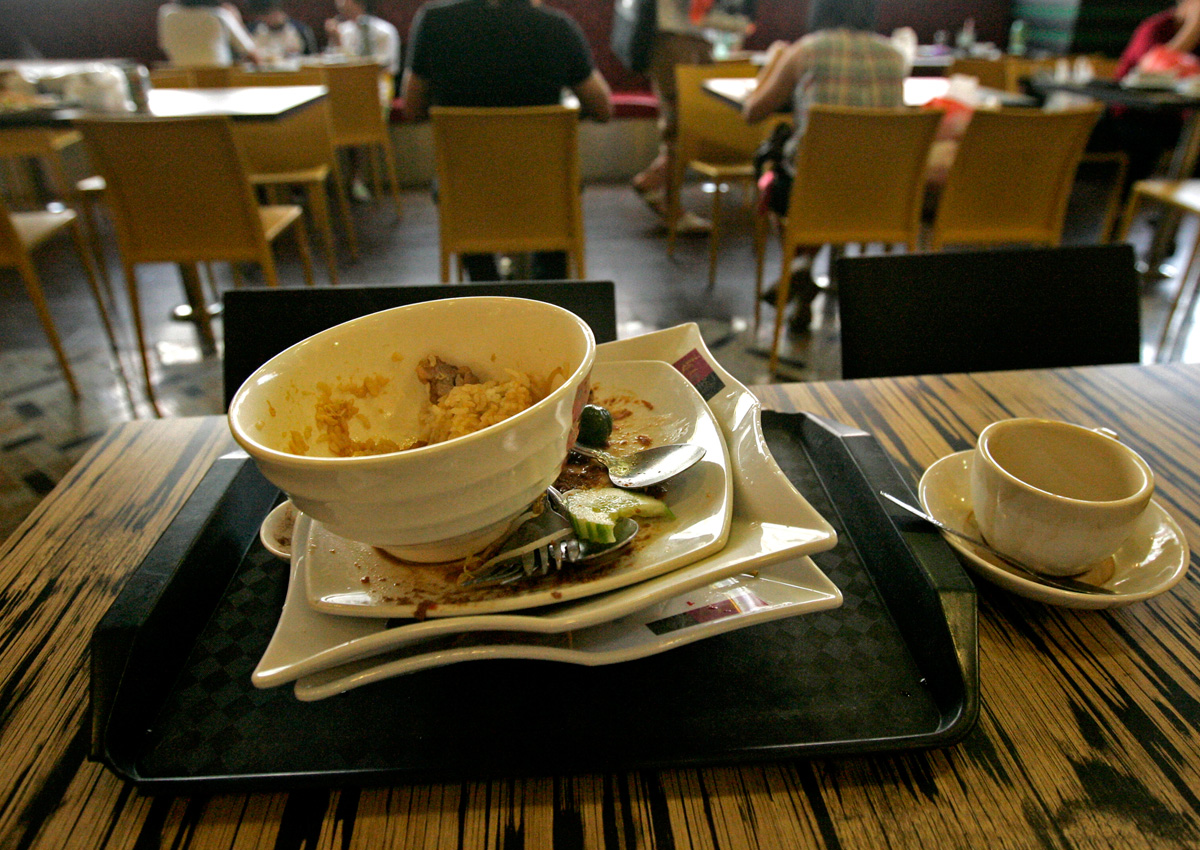GETTING people to return their trays after a meal remains a big priority for the Public Hygiene Council.
It set up a drive encouraging people to do so in 2013, but in an informal assessment requested by The Straits Times on how Singapore fares in various aspects of hygiene, council chairman Edward D’Silva rated tray return the most poorly, awarding it just four marks out of 10.
Other areas – like personal hygiene, adoption of dirty areas to keep them clean, litter disposal and clean toilets – fared better at six or seven out of 10.
“When trays are not cleared quickly enough, especially in non-air-conditioned food places, the birds come and pick on the food,” he said.
“That has a potential effect on disease.”
As a reminder to Singaporeans to keep the environment clean, the council held its annual Operation We Clean Up event around the island yesterday with the support of the Singapore Kindness Movement and National Environment Agency.
Patrons at 31 Kopitiam outlets were reminded to return their trays as part of the initiative.
Yip Keng Soon, director of operations at Kopitiam Investment, said the public has the misconception that clearing trays will leave cleaners out of work.
“They will in fact be making life easier for the cleaners and making work less of a burden for older workers,” he added.
He acknowledged, however, that tray return facilities are still lacking.
Ministers and members of parliament were out in force to pick up litter with residents in their wards.
Among them was Masagos Zulkifli, Minister for the Environment and Water Resources, who did his bit at an open area in Tampines Avenue 3.
“I was told that it takes just two minutes to clear up the bins for the cleaners,” he said.
“However, if the litter is thrown all over the place, it takes 20 minutes of back-breaking work.”
In conjunction with the event, several wards also gave their cleaners a day off yesterday and some hosted dinner for the cleaners.
A bin sensor system was piloted in Nee Soon, which alerts the town council and cleaners when bins are full.
Professor Leo Yee Sin, director of the Institute of Infectious Diseases and Epidemiology at Tan Tock Seng Hospital, said the environment has an impact on health.
“A lot of times in medicine, we think that it is the discovery of antibiotics, discovery of vaccines, that change the health of people. If you look back into Singapore history, what made a difference is the environmental cleanliness, it’s the sanitation,” she added.
jalmsab@sph.com.sg

Get MyPaper for more stories.






